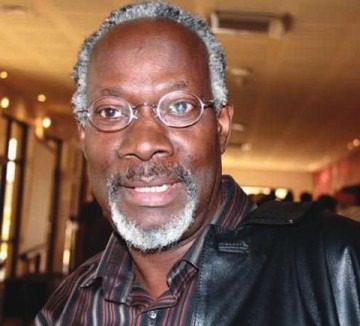Global Issues
Why Are We Not Ashamed? -By Kole Omotoso

Take a walk around the world brother, sister, take a stroll around the globe. Virtually those who can immediately do this, digitally those who would leisurely pace this earth. Why would a USA peace office shoot a black person, even in the back? Why would four young men turn guns on unarmed young men and women in a university campus in Garissa in Kenya? Why would a group of armed men terminate the lives of over two hundred and fifty teenagers and an African head of state says it did not happen? Or it is the ploy of his political enemies to soil his bad reputation? Why are Africa’s young shouting I Must Get Out Of Africa only to drown in Mediterranean Sea? Why would three men set on a fourth man, whose name they know not, with knives until he dies in South Africa? Or any where else for that matter?
Why are we not shamed by these shameful things? It is shameful that others kill us, torture us, humiliate us. What word do we use when we kill ourselves, torture ourselves, humiliate ourselves? If whatever word we use does not tell us that we must do something to stop others killing us, we shall continue to be killed, to be tortured, to be humuliated. If the word we use does not tell us how to stop killing ourselves, torturing ourselves, humiliating ourselves, we shall continue to do it.
If others hate us, we seem to have studied why they hate us and then excused their hatred. And so we do nothing about their hate activities. And because we excuse the hatred of others we borrow their hate activities and show how we also hate ourselves. We complicate matters. We do not understand ourselves. And so now we call on God, we hail Allah to save us. But nothing doing. Too busy somewhere else. We call on leaders to cut through the nonsense pretence reasons we hurt ourselves and take us out of this rotvonce and for all time. This call is a more realistic call. The leaders are among us, they are with us, they are us. We call on ourselves to blind ourselves from everything but our salvation. Let shame lead us out of shame.
How can shame lead us out of shame? Because the English meaning of shame does not include the reciprocal shame that the person shamed should feel, that definition is thereby deficient. Here is one meaning from Collins English Dictionary: ‘a painful emotion resulting from an awareness of having done something dishonourable, unworthy, etc.’ This definition restricts the sense of shame to the perpetrator of something dishonourable, something unworthy. The Yoruba definition includes the sense of ‘abuku’ ‘demeaning’ to the person so shamefully treated. But it is not just the English definition of shame that has absolved the shamed the receiprocal share of shame in the shameful act. Christanity has made a hero of the shamed. Those defeated, those who are weak, those who are poor are all called to come to Jesus to be assured of strength in the hereafter. Defeat, weakness, poverty become certificates of entry into the kingdom of God through Jesus Christ. With this kind of ideology, it is those who inflict defeat, those who take advantage of the weak and those who ‘povertise’ others who are asked to be ashamed of themselves. But if shame is to redeem us, we targets of shameful acts must accept our share of shame and let it spur us onward to insist that never again would such a thing happen to us.
Life is about an increase of wealth, an increase of family and friends and an increase of good healthy, the greatest wealth on earth. These are achievable when humans do every thing in moderation, with the avoidance of excess. This rather general ideology inspired by the Ifa Divination system underlies the campaign of the African slaves who rebelled against the Abbasid government of the ninth century and led the first sucessful slave revolt. It was in the area between the Rivers Euphrates and Tigris. This space was used for planting sugar cane and slave labour was used to clear the salt petre that flooded the area before the planting of the sugar cane. The leaders of the revolt promised the revolting slaves that they would hold slaves in turn when they were free. This particular line of thinking is problematic to the whole concept of the total liberation of humanity from enslavement, but that is another argument to pursue under a different heading. Such an argument would have to find space for the Israeli treatment of Palestanians today. The human ego shamed by enslavement can only be restored when it enslaves its enslavers.
The ‘Revolt of Zang’ as the above revolt came to be known was sucessful and the liberated slaves lived in their liberated space for thirteen years before their state was overrun and re-incorporated into the Abbasid Caliphate. There was a repeat of this ideology during the trans-Atlantic slave trade when the slave leaders who led the revolt on the slave trading ship, the Armistrad became slave traders in their turn, capturing, buying and selling their own in turn. The next major revolt of slaves is the one that took place on the Island of Haiti as one of the off-shoots of the French Revolution over two hundred years ago.
It is possible to say that Haiti remains the poorest state in the western hemisphere today bevause it refuses to do what its oppressors did: exploit whoever you can find to exploit and move forward. Singapore exploited the greed of the West for cheap labour and tax free zones of the world and so made its people prosper. Most African countries remain poor because they have not learnt that shame can only be wiped away by doing what your exploiters did to shame you. Shame them in turn and become like them.
Kole Omotoso writes from Akure.




















